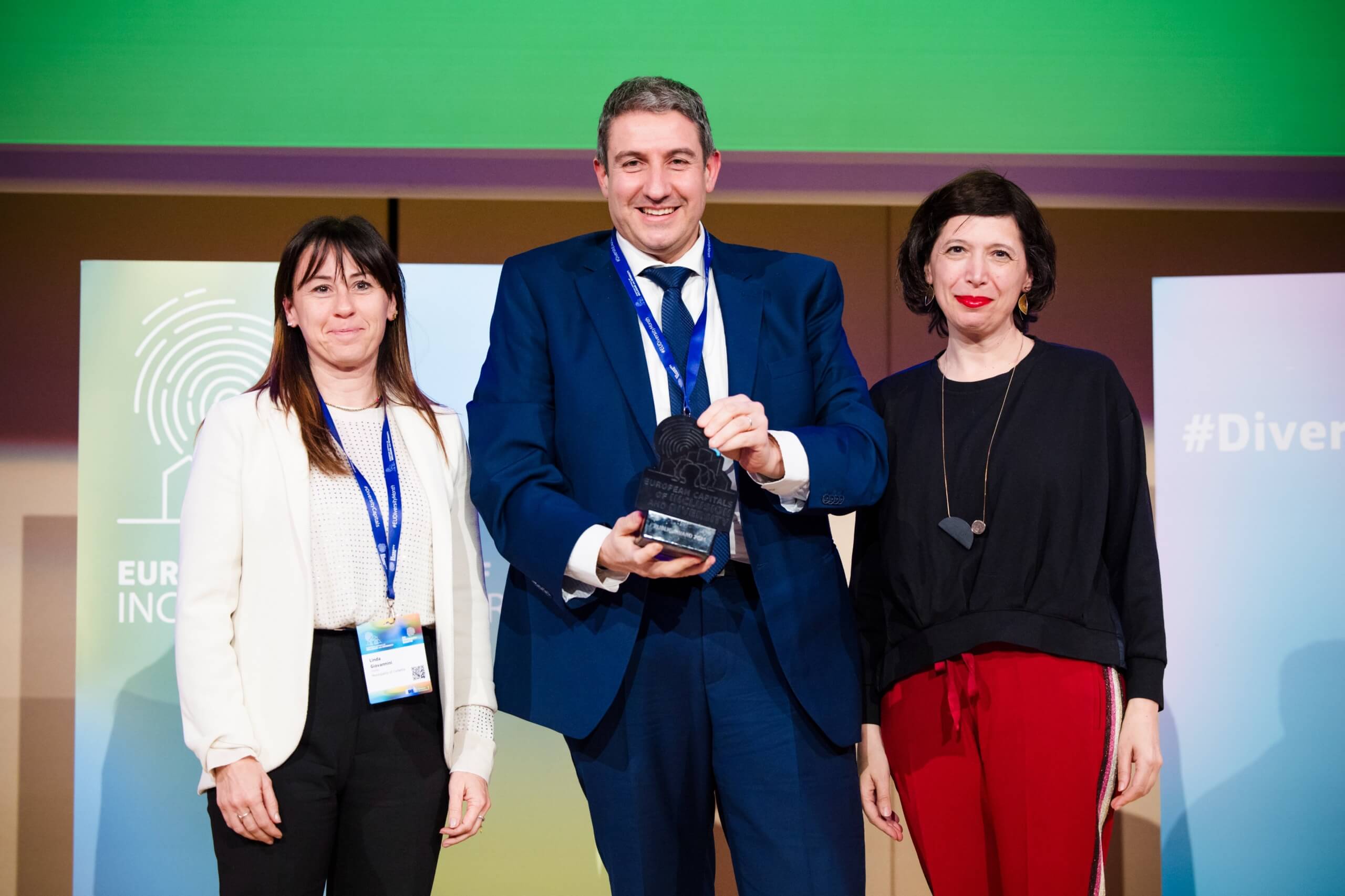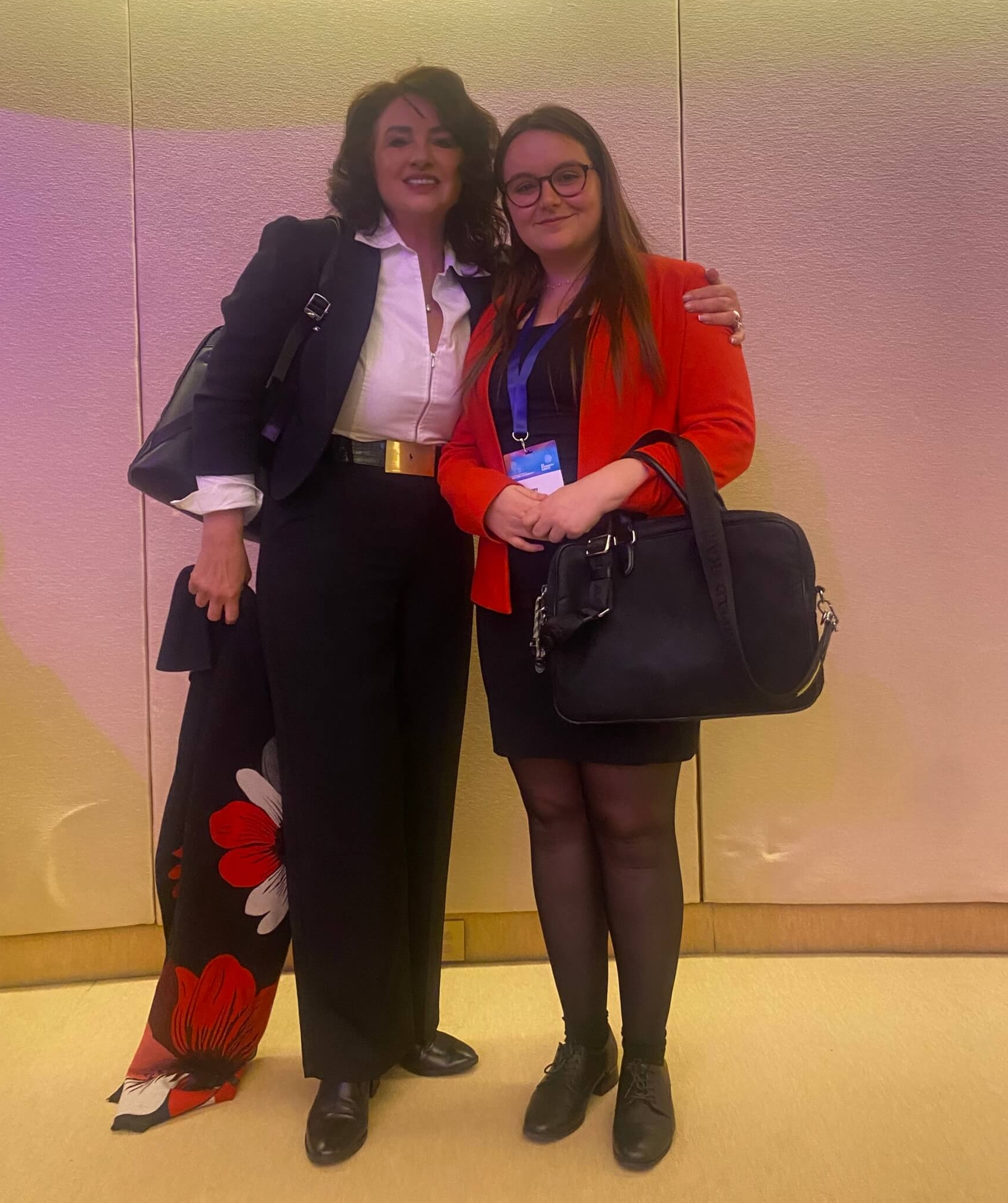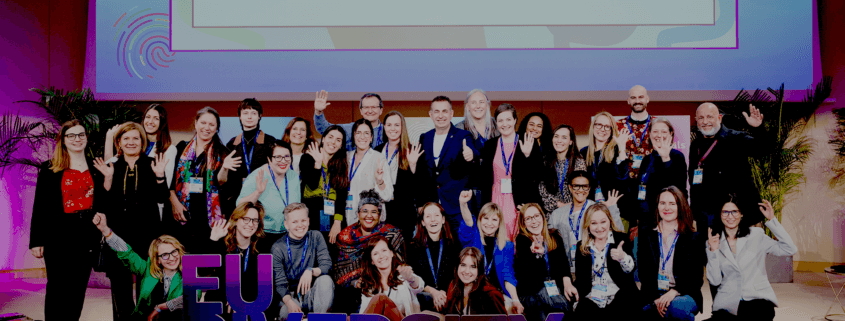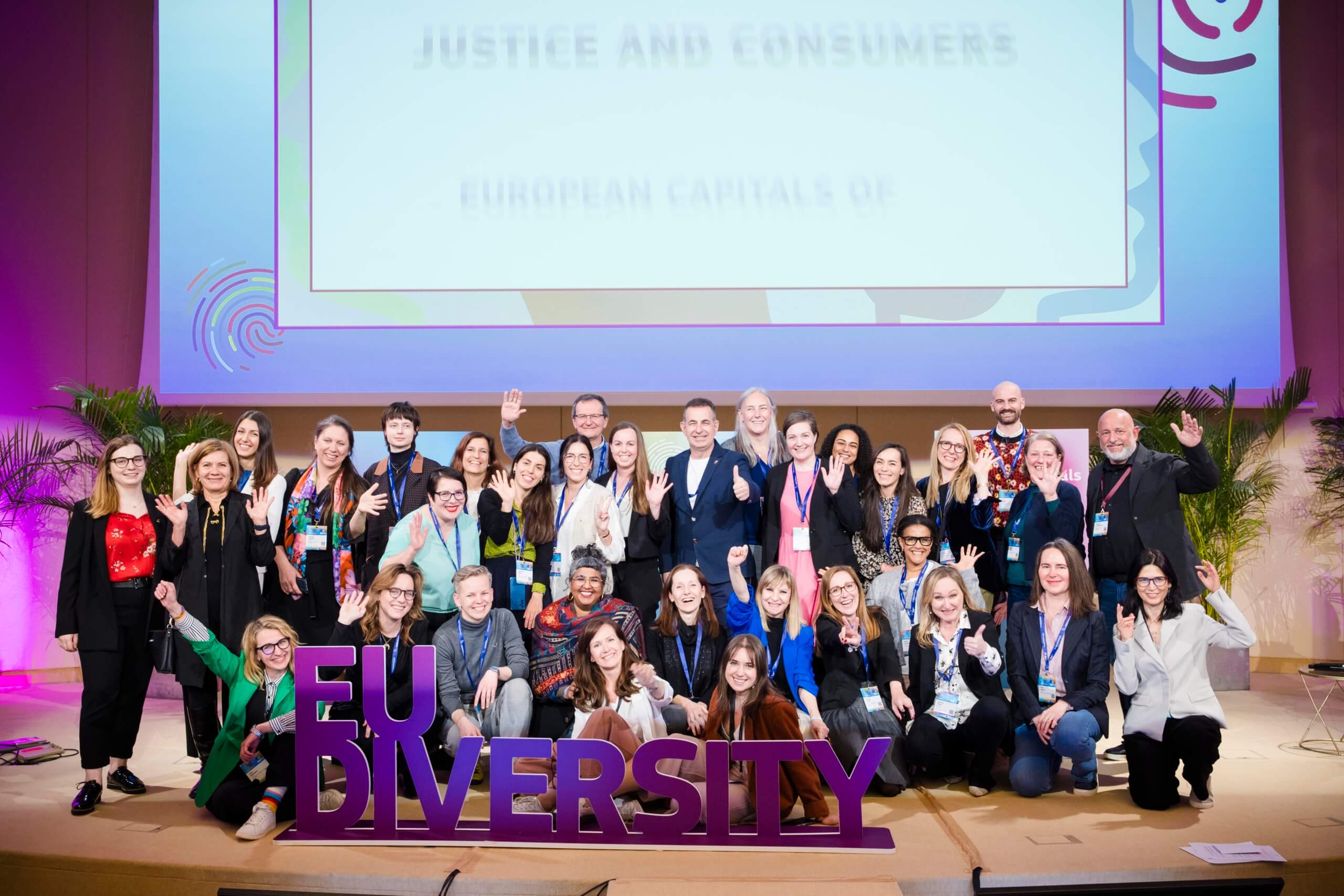Managers defend their role at the kick-off of the EU Diversity Month 2024
Yesterday, April 25, 2024, the European Diversity Month kicked off in Brussels with the awarding of the “Promoting Diversity in the European Union 2024” prize.
The Awards celebrate the towns, cities, and regions across the EU that lead by example in inclusive policies.
The Italian town of Corbetta won the 2024 European Capitals of Inclusion and Diversity Award thanks to the public’s vote, and its project for inclusion was accompanied by other towns in Croatia, Sweden or Spain.
In detail, in the category of ‘local authorities with more than 50,000 inhabitants’, Zagreb, in Croatia, received the Gold Award; Växjö, in Sweden, the Silver Award; and La Laguna, in Spain, the Bronze Award.
Ljubljana, in Slovenia, Miranda de Ebro, in Spain, and Växjö, in Sweden were also chosen for their commitment to fighting violence against women.

The mayor of Corbetta (Italy) is holding the Gold Award
In general terms, the European awards are a recognition for the public administrations work to build fairer societies through the promotion of diversity and inclusion on the grounds of sex, racial and ethnic origin, religion and belief, disability, age, and sexual orientation.
These Awards were launched within the EU’s Anti-Racism Action Plan 2020-2025, and the LGBTIQ Equality Strategy 2020-2025, the annual European Capitals of Inclusion and Diversity Awards are part of the Commission‘s work towards a Union of Equality.
This means your town, city, or region could get the recognition it deserves for building an environment that allows everyone to feel safe and fulfill their potential.
CEC European Managers’ Director, Olga Molina, disseminated and defended the position paper “Mainstreaming Gender Equality in European Leadership” and the 7 key priorities for the EU Elections
Disseminating the voice of managers
CEC European Managers was present at the ceremony and in the subsequent debates. The organisation’s director, Olga Molina, had the opportunity to speak to various stakeholders in the field of sustainability and democracy and disseminated and defended the position paper “Mainstreaming Gender Equality in European Leadership” and the 7 key priorities for the EU Elections.
It all started with the European Commissioner for Equality, Helena Dalli, who discussed the developments made during the current legislature and Evelyn Regner, Vice-President of the European Parliament, who welcomed participants from Strasbourg. Then the speakers began the round of debates and presentations.
Among some exciting contributions, highlighting the desire expressed by Partick Charlier, Director at the Interfederal Center for Equal Opportunities – Unia, is that in the next legislature, there is no need for a Commissioner of Equality because this has been fully integrated into European societies.
A chimera that does not seem easy to become real in a short period of time because “To face the structural inequality system discrimination, we need to engage and to commit to political action.”
In this sense, Charlier reflected on the need to be clear that “Political Issues and Human Rights are not opposing realities.”
Other interesting reflections concerned the cultural complexity inherent in the European project. So, Demetris C. Hadjisofocli, Managing Director at The Center for Social Innovation, warned: “We are a union, but come from different backgrounds and, therefore, travel at different speeds.”
“To face the structural inequality system discrimination, we need to engage and to commit to political action”
Patrick Charlier, Director at the Interfederal Center for Equal Opportunities – Unia
Irene Moozová, for her part, was the speaker who put social dialogue on the table with the demand that any work done in the field of Gender Equality and the promotion of inclusion must have the EU Pillar of Social Rights as a guideline.
The Belgian presidency of the EU, in the mouth of Frédérique Fastré, highlighted the country’s role during its mandate and recalled that an EU Council will be organized shortly to discuss future measures in diversity. This will be the first time a full Council of the European Union session is dedicated to this issue.
Among the panelists were heavyweights from large multinational corporations, such as Randall Tucker, Executive Vice President and Chief Inclusion Officer at Mastercard. Tucker took the opportunity to highlight how relevant good communication and storytelling campaigns are to promoting certain job profiles that help address the shortage of skills.
Similarly, Jasmin Aronsson El Kachani, responsible for Culture Inclusion and Belonging at Volvo Cars, explained the importance of narrating “how effective the promotion of diversity is to guarantee our safety and connect us with the company’s purpose.”
Coming from Lithuania, Donatas Paulauskas, Head of Diversity, Inclusion and Well-being at Ignitis Group, spoke about the essential role of leadership and asked to “share responsibilities with managers if we want to engage employees.”
For this to happen, the “Barbershop toolbox” was quoted as a success story. The tool was developed by Icelandic organisations, and it has been proven very effective in changing biases and behavioural patterns.
Responsibilities should be shared with managers if we want to engage employees
Donatas Paulaskas, Head of Diversity, Inclusion and Well-being at Ignitis Group
The observation of Tania Holt, Senior Partner at Mckinsey & Company, was enlightening, as she brought a sociological analysis to the equation of equality: “Ethnic minorities tend to find their jobs through their networks much more than other groups. We should ask ourselves why this is happening.”
Building bridges: Beyond Unconscious Bias EU Project
Empirical data supporting economic and social policy direction is essential for implementing effective strategies. In this sense, one of the conclusions of yesterday’s debates is that it is necessary to encourage and hire more profiles skilled in gender analysis.
This professional path is closely linked to leadership in neurodiversity which the European Union is willing to promote because it is necessary for economic success.
In that sense, panelists endorsed, “If you want to understand how successful a company will be, take as an example 10% of its top management level and analyze its diversity.”
The European project led by CEC European Managers, Beyond Unconscious Bias – BEYUNBI, goes in this direction and has been well received during the networking sessions.
Finally, CEC European Managers celebrates the active role of the European Commission in order to combat gender inequalities.

Olga Molina (CEC’s Director) with EU Commissioner for Equality, Helena Dalli at the Kick off – European Diversity Month 2024





